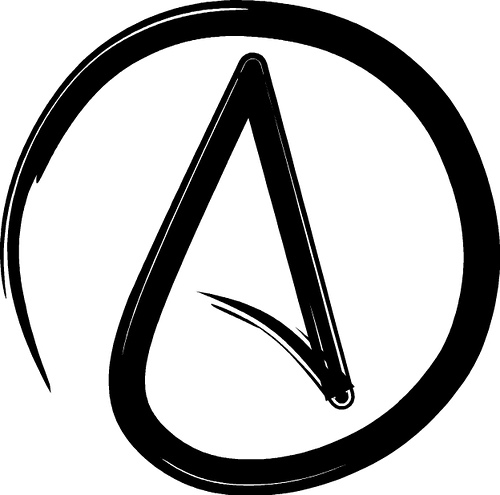Reflecting on identifying as an atheist

December 10, 2015
When I was an atheist, my life was really depressing. I would try, try and try again to believe in anything, but I was unable to believe.
As an atheist you learn some things about this world that not a lot of people know, or are willing to know. For one, all religions are human constructs—usually created by patriarchal societies. Second, many scientists in previous eras of history were burned at the stake for simply proving a hypothesis. And third, all religious leaders are merely human—they aren’t messiahs, the resurrection of Christ or Buddha; they’re human and humans aren’t perfect.
Although I highly disagree with human religions (animal ones are okay), I strongly agree with Marx that religion is the opium for the masses—religion serves as a way to keep the common people under control. Let’s face it, religion brings hope to this slowly dying rock we live on. If all the religious people in the world today were to lose their religion right this instant, then how safe would we be walking the down the street?
Spirituality is—to an atheist— just the superior prefrontal cortex of an ape-like creature trying to cope with this world—this pale blue dot on the outer edge of the galaxy.
As you can all tell, I’m the life of the party. In all honesty, atheism was a very depressing thing for someone who has an above average intelligence. The average people follow trends. The new-atheist today, is most likely a trend-follower—most likely a hipster. Nowadays it’s so cool and edgy to call yourself an atheist, but ninety-years ago you could have been stoned to death, and two-hundred years ago you could have been burned alive.
What am I doing with my life now? Nowadays I’m no longer an atheist. I do believe in something, an origin point, a beginning—call it creator if you may. I don’t know; I don’t know what I am actually. I will leave you all with Albert Einstein’s words on religion:
“I’m not an atheist. I don’t think I can call myself a pantheist. The problem involved is too vast for our limited minds. We are in the position of a little child entering a huge library filled with books in many languages. The child knows someone must have written those books. It does not know how. It does not understand the languages in which they are written. The child dimly suspects a mysterious order in the arrangement of the books but doesn’t know what it is. That, it seems to me, is the attitude of even the most intelligent human being toward God. We see the universe marvelously arranged and obeying certain laws only dimly understand these laws.”


Michael Logue • Dec 11, 2015 at 4:10 pm
“When I was an atheist, my life was really depressing. I would try, try and try again to believe in anything, but I was unable to believe.” This is a glaring and obvious indicator that you really weren’t an atheist, and are only claiming to have been one in oder to push your theistic message. Shame on you. Isn’t lying a sin?
Mark Moore • Dec 10, 2015 at 5:10 pm
Gee Michael,
This all sounds really depressing. I am an atheist and the world looks bright and wondrous to me (for the most part – there are those days it doesn’t). Most of my friends are atheists and they are optimistic bouncy people. We are always marveling over the latest discoveries and wondering what will come next.
No one I know personally worries about what to believe in. The churches are in retreat. Even the Islamics are having a big atheist problem. The future looks pretty bright.
If you are feeling down and it continues, it might be a good idea to see a professional no matter what you believe or not.
Ian Cooper • Dec 10, 2015 at 3:41 pm
You’re demanding order where there is no guarantee of order. This is magical thinking. The universe does not have to conform to your desires.
Sure, the universe is vast and chaotic, and some people find that oppressive, so they want some sort of design to it to give them comfort. But the universe doesn’t care.
As an atheist, I find the universe a beautiful place. I don’t have to understand everything about it in order to be happy. Your problem wasn’t atheism. Your problem was and is that you need the universe to be something it’s not, so you’ve dumped atheism and replaced it with a fiction – an invented spirituality that includes a creator, so that you can fit it into a nice little box that makes you feel you can understand it. But all you’re doing is making it even more unintelligible.